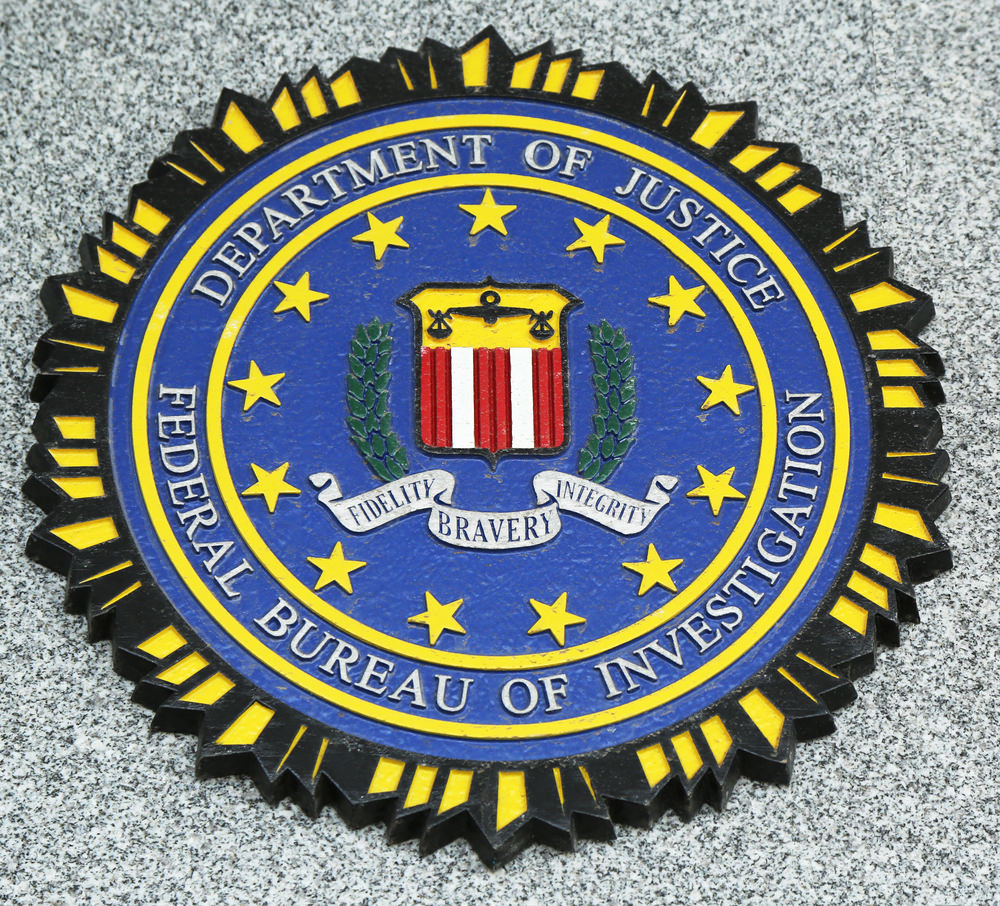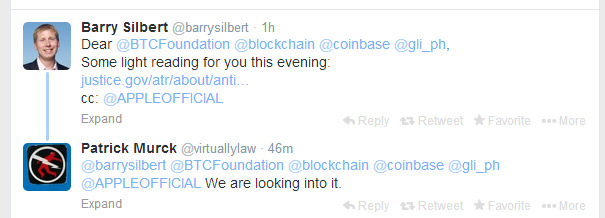
US Government Says Apple is NOT in Violation of Antitrust Law
The US Department of Justice (DOJ) has stated it will not take action against Apple for its recent decision to ban bitcoin apps.
The announcement comes amid a growing furore among bitcoin users, who were outraged by Apple’s decision to remove the official Blockchain app from its App Store earlier this week.
The DOJ stated:
This response was prompted by bitcoin enthusiast Andy Chase, who submitted an official complaint to the agency’s Citizen Complaint Center.
Chase’s complaint was detailed, including an annotated explanation of bitcoin, and a detailed overview of the actions Apple has taken against apps from bitcoin companies, such as Blockchain, Coinbase, Coinjar and Gliph.
Chase summed up his argument with the following conclusion:
Further, Chase was far from the only person to suspect Apple may be in violation of antitrust laws, with even major industry investors commenting as such publicly:

EwHMy6b
Government response
The DOJ did not elaborate on its decision, and has not responded to requests for further comment. Instead, the department sent Chase three web links that it believes clarify why Apple is not in violation of antitrust laws.
These included the Department of Justice main website, a six-page guide called “Antitrust Enforcement and the Consumer” and a lengthier primer on antitrust issues for law enforcement officials.
It is likely the DOJ’s decision stems from the fact that Apple, which offers no payment services, does not directly compete with the bitcoin companies it has banned.
The complaint process
The Antitrust Division’s Citizen Complaint Center lists four steps that a complaint may take through the agency. Upon examination, Chase’s complaint did not make it far into the process, failing to garner even an additional review.
- The CCC creates a record of the information provided.
- The CCC conducts a preliminary review.
- If the complaint raises concern under federal laws, it is sent to a legal team for review.
- If the CCC needs more information, it will contact the claimant within one month.
Chase, commenting on the decision, lamented that this was “pretty much the lowest level of rejection”. Still, he doesn't regret reaching out:
Image credit: Leonard Zhukovsky / Shutterstock.com
DISCLOSURE
The leader in news and information on cryptocurrency, digital assets and the future of money, CoinDesk is a media outlet that strives for the highest journalistic standards and abides by a strict set of editorial policies. CoinDesk is an independent operating subsidiary of Digital Currency Group, which invests in cryptocurrencies and blockchain startups. As part of their compensation, certain CoinDesk employees, including editorial employees, may receive exposure to DCG equity in the form of stock appreciation rights, which vest over a multi-year period. CoinDesk journalists are not allowed to purchase stock outright in DCG.

